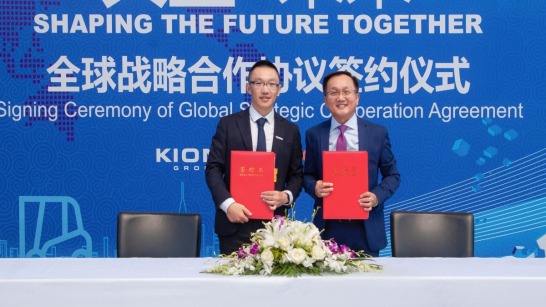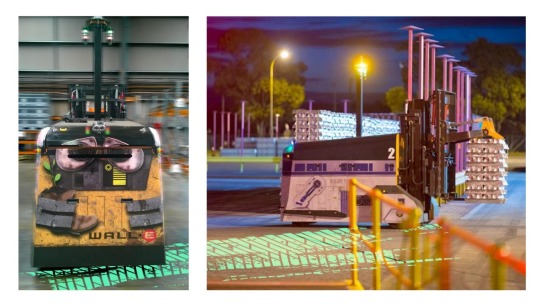Thinking strategically with digital transformation
KION’s bot factory is part of the Group’s “Finance Forward" initiative, where the goal is to drive forward the digital transformation of its financial organizations. "By automating and standardizing internal processes, we want to provide our employees with optimum support in carrying out their daily workload," notes Alexander Schlott, head of KION Finance Solutions.
During the bot factory’s pilot phase, typical use cases from KION's finance and sales functions were targeted for RPA. The first bot was programmed for KION brand Linde Material Handling in the UK, whose accounting team volunteered to be a pilot site. They learned that when creating an invoice, an accountant must open several systems and files to retrieve assorted and necessary data, requiring up to three minutes to complete the transaction. However, the bot needed just 50 seconds.
Over in Hungary, the Linde MH’s sales back office uses a bot for booking standard customer invoices. During the time-critical month-end closing, 200 customer invoices must be manually created in a single day. To repeat the same process 200 times, it would take an accountant nearly eight hours. In contrast, the bot needs just 60 minutes for the same task. Since the bots always follow a set algorithm, they also deliver error-free results. Working around the clock - even at night - is not a problem. "The feedback from our colleagues during the pilot phase was consistently positive," says Stiehl. They are pleased with the support provided by their digital assistants and see them as additional team members.
Global rollout planned at all administrative areas
The bot factory’s development team plans to expand the use of RPAs and extend process automation to all administrative areas. "As RPA experts, we can apply our knowledge to the finance and sales functions as well as to all administrative areas for process automation," Stiehl points out. Provided the works council in Germany agrees. Meanwhile, the "KION Bot Factory" is currently focusing on process automation outside Germany.
Currently, ten bots are in operation at KION Group. The team plans to increase the number to 20 by the end of the year. In the long term, the bot factory is to act as a central organization supporting the Group’s various operating units (OU). The team is already conducting process automation for the Dematic OU in the US and for its APAC operating unit in Singapore. Meanwhile, the KION APAC OU is setting up its own bot hub and has already launched a pilot test. With good reason: When a bot performing a critical process outside Europe stops functioning due to a technical issue, it could present a challenge to the bot factory colleagues in Europe when it comes to carrying out maintenance due to the various time zones. "By setting up bot hubs outside Europe, we can ensure that we are always available for maintenance work in an emergency," explains Stiehl. A second hub in the US is also part of future planning. That’s good news for software assistants Elvin, Jacky, Lolek and Bolek, who can look forward to additional support in the near future!



